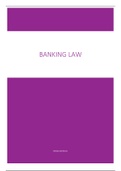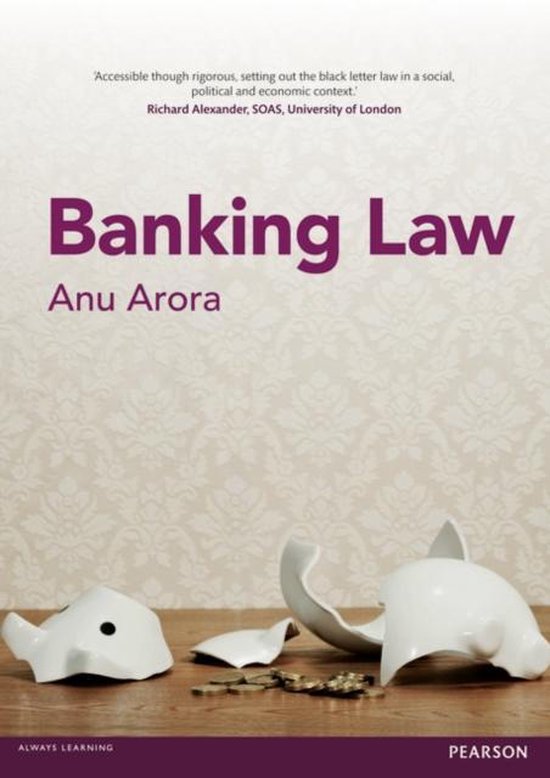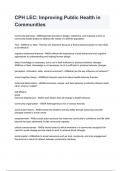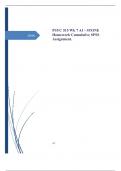Study guide
Banking Law Study Notes
- Module
- Institution
- Book
Scored 85% on this module. The study notes provide a complete set for exam preparation. They include information from lectures, textbooks, as well as academic commentary. There are also tips on how to tackle the exam question whether problem question or an essay question. The notes cover everything...
[Show more]






